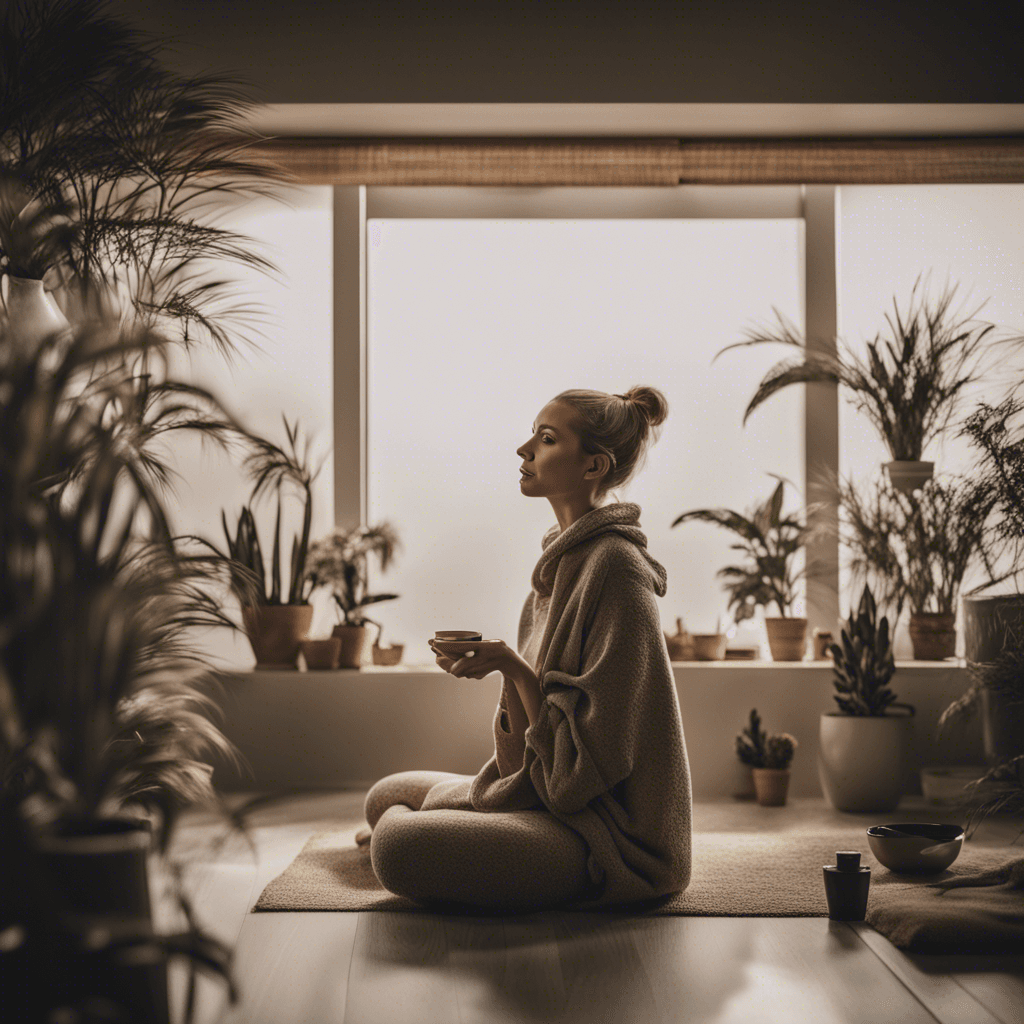Effective Self-Care: Small Changes That Can Transform Your Daily Routine
In today’s fast-paced world, finding time for self-care can feel like an added task rather than an enhancement to life. However, self-care isn’t about overhauling your entire lifestyle; it’s about implementing small, effective strategies that integrate seamlessly into your daily routine. By making these manageable changes, you can foster a healthier, more balanced life while enhancing your mental and physical well-being.

The semblances of health and wellness can often get overshadowed by hectic schedules, but understanding the significance of self-care strategies is vital for sustained health. Whether it’s a few minutes of morning meditation, a short walk during lunchtime, or adopting new self-care tips, these small changes for wellness can make a noticeable impact. As we delve deeper into this topic, we’ll explore how slight adjustments can transform your daily routine and bolster your mental health self-care practices.
Why Meditation is Good for Your Health
The Science Behind Meditation
Meditation has gained widespread popularity for its profound impact on mental health. At its core, meditation promotes mindfulness, which helps in reducing stress and anxiety levels. Brain studies indicate that regular meditation can alter the neural pathways, leading to enhanced focus, reduced symptoms of depression, and improved emotional health. These findings underpin why meditation is good for your health and suggest it can be an integral part of personal wellness routines.
Integrating Meditation into Your Routine
Integrating meditation into your daily life doesn’t require an hour-long commitment. Starting with just five to ten minutes each morning can significantly influence your mindset for the rest of the day. Guided meditation apps can offer structured programs if you’re new to the practice. Many people find sitting quietly focusing on their breath an effective starting point.
Practical Applications and Benefits
Beyond mental health, meditation supports physical well-being. It aids in lowering blood pressure, improving heart health, and fostering better sleep patterns. A practical example could be incorporating a ten-minute session before bed to unwind which might improve your overall sleep quality. This illustrates how improving daily habits can be both simple and profoundly beneficial.
Self-Care Strategies for Daily Routine Transformation
Prioritizing Consistency Over Intensity
When incorporating self-care strategies into your routine, the focus should be on consistency rather than intensity. Small actions such as drinking a glass of water first thing in the morning or setting aside 15 minutes for journaling can establish a rhythm that centers around personal wellness. It’s the cumulative effect of these small changes for wellness that leads to a significant transformation.
Making Time for Physical Activity
Physical activity is a cornerstone of effective self-care. The key is to choose activities that you enjoy and that can effortlessly fit into your schedule. For instance, a daily 20-minute brisk walk during lunch breaks can invigorate both mind and body, contributing positively to your mental health self-care practices. Additionally, casual activities like gardening or cycling can be enjoyable ways to meet your physical health needs.
Enhancing Your Living Space
Your environment plays a crucial role in your mental health. Creating a calming space at home by decluttering, adding plants, or even changing the lighting can have a calming effect. This space becomes a sanctuary for relaxation, reading, or meditation, seamlessly integrating into your self-care routine without significant lifestyle changes.
Personal Wellness Routines and Mental Health
Building a Personal Wellness Routine
A well-rounded personal wellness routine encompasses physical, mental, and emotional health aspects. Start by identifying which self-care tips align with your lifestyle and make gradual modifications. You might begin with simple steps like incorporating more vegetables into your diet or scheduling regular phone-free times to reduce digital stress.
Addressing Mental Health Through Self-Care
Mental health self-care should be proactive rather than reactive. Engage in activities that mentally stimulate you, such as puzzles or reading, and those that provide relaxation, like listening to music or taking a warm bath. A balanced approach ensures you nurture your mental resilience, essential for overall well-being.
Monitoring and Adjusting Your Routine
Once your personal wellness routines are in place, it’s essential to periodically reflect and adjust them if necessary. Pay attention to what works and what doesn’t, and be flexible to modify as your needs evolve over time. This adaptability forms the foundation of how you maintain a routine that supports a healthy, joyful life.

What are small changes I can make for better self-care?
Begin with short, manageable tasks like setting routine bedtimes, adding stretches to your morning routine, or drinking more water. These small changes for wellness gradually accumulate into meaningful impacts on both mental and physical health.
How can I improve my mental health with self-care?
To improve mental health self-care, it’s vital to integrate activities that relax and rejuvenate. Practices like meditation, deep-breathing exercises, and engaging in hobbies can significantly enhance mental states. Even simple activities like nature walks can improve mood and reduce anxiety.
Why is it important to adjust my self-care routine periodically?
Your needs and circumstances change over time, making it critical to adapt your self-care strategies accordingly. Regular evaluation will help ensure your routine remains relevant and effective, allowing for continual support of your mental and physical well-being.
Are there any quick self-care practices for a busy lifestyle?
For busy lives, consider micro-practices such as two-minute breathing exercises, taking phone calls while walking, or setting a daily intention. These require minimal time yet offer significant reinvigoration, fitting seamlessly into a packed schedule.
How can meditation specifically benefit my daily routine?
Meditation offers a centering practice that promotes calmness and focus. By dedicating just a few moments each day, you elevate mindfulness, reduce stress, and start building a foundation of tranquility that permeates your daily activities, enhancing overall efficiency and satisfaction.
Conclusion
Incorporating effective self-care strategies into our daily routines doesn’t necessarily demand radical changes. By understanding and embracing small alterations, we’re empowered to make meaningful transformations that improve daily habits and enhance our lifestyles holistically. These adjustments provide a foundation for long-term health and personal satisfaction.
Self-care is an ongoing journey rather than a destination. It encourages us to pause, reflect, and prioritize our well-being amid life’s chaos. As you implement these self-care practices, you’ll likely find that your ability to handle stress improves, and your overall quality of life flourishes.
Empowering yourself with this knowledge and taking tangible steps toward personal wellness routines can transform not only how you approach your day but significantly enhance your health, both mentally and physically. Embrace the journey, make those small changes, and witness how these elements come together to form a cohesive, healthier lifestyle.
To enhance your understanding further, consider exploring video content on topics such as “Meditation Techniques for Beginners,” “Crafting a Personal Wellness Routine,” and “Quick Self-Care Tips for Busy Schedules.” These resources can offer visual guidance and motivation as you embark on your self-care journey.


